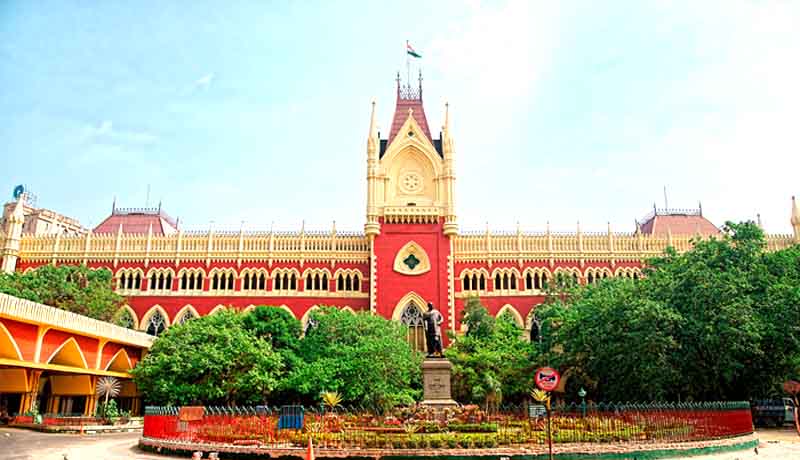A Foreign Company’s Obligation to Withhold Presumptive Tax and Deposit it with the Department u/s 44D(b) of the Income Tax Act is Optional; Calcutta HC ]DOWNLOAD JUDGMENT]

COVID-19 – Tax – Income Tax – Calcutta High Court – Taxscan
COVID-19 – Tax – Income Tax – Calcutta High Court – Taxscan
The Calcutta High Court, while deciding a Writ petition filed by the Timken India Limited & Others against the Deputy Commissioner of Income Tax, Kolkata, under Article 226 of the Constitution, held that a foreign company has a right to choose in depositing the presumptive tax with the Department.
Under an agreement of August 2, 2000, the second petitioner foreign company agreed to provide certain services to the first petitioner Indian company against compensation to be charged at cost without any mark-up or profit. The technical services that the foreign company agreed to provide to its Indian subsidiary included management services, management information services, systems development and computer usage, communication services, engineering services, manufacturing services and the like. Section 1.2 of the said agreement provided that “Compensation Recipient shall pay Provider for all services and materials provided pursuant to this agreement, upon receipt of an invoice from Provider. Provider shall provide invoices to
Recipient listing the services that Provider has provided to Recipient and/or which Provider has obtained from third parties on behalf of Recipient, during each calendar month. Each invoice shall be submitted no later than the fifteenth (15th) day following the end of each calendar month. Each invoice shall identify the compensation that is due to the Provider to compensate it for all costs of providing such services. Only costs, without any mark-up, shall be invoiced.”
The Indian subsidiary was to remit a certain amount against the invoices raised by the foreign company on its Indian subsidiary. In this regard, the Indian company approached its assessing officer vide its letter of March 21, 2002, for an order under Section 195(2) of the Income Tax Act, authorizing the Indian company to remit the payment without deducting tax at source under Section 195(1) of the Act, inter alia, since the remittance was on account of reimbursement of the costs and expenses actually incurred by the foreign company and the same did not contain any mark-up or profit element. The assessing officer, however, declined the request on the ground that whether the money proposed to be remitted contained any profit element or not, “is a subject matter of a regular assessment in the hands of the recipient company and this cannot be a subject matter for discussion in course of issuance of a certificate related to tax-deductible at source…”
The Indian company preferred an appeal under Section 248 of the Income Tax Act before the Commissioner of Income Tax (Appeals) VIII, Kolkata against the said order. But later, the company approached the Authority for Advance Rulings constituted under Section 245-O of the Income Tax Act by withdrawing the appeal.The authority ruled that that the Indian company would have to withhold income-tax at the appropriate rate while making payment on account of technical services to the foreign company. The Union has referred more to the said opinion of the authority than the petitioners as the Union contends that in view of the decision of the relevant authority, the present proceedings should not have been entertained. The Authority for Advance Rulings noticed the sheet-anchor of the petitioning assessee’s case, a judgment reported at 219 ITR 330 (Union of India v. A. Sanyasi Rao), and held that the Supreme Court had rejected the contention that the collection of tax due from specified traders on a presumptive basis was violative of Article 14 of the Constitution. The Authority also held that in dealing with Section 44AC in A. Sanyasi Rao, the Supreme Court observed that the provisions for presumptive tax on non-residents were irrelevant in the context of Section 44AC of the Income Tax Act.
The petitioners challenged the order of the Revenue through a writ petition. The issue pertains to the machinery of presumptive tax provided for in the provision and the contention of the petitioners that the apparent shutting out of an assessee’s option to claim deductions from the gross income in respect of the matters covered by the provision is unreasonable and, as such, falls foul of Article 14 of the Constitution of India.
It was held by the Calcutta High Court that the resident assessee making a payment in respect of a matter covered by Section 44D(b) of the Income Tax Act to a foreign company will be obliged to withhold the tax on a presumptive basis and deposit the same with the department. However, it will be open to the concerned foreign company to subject itself to assessment by claiming the permissible deductions, notwithstanding Section 44D(b) of the Act, whereupon the burden, as always, will be on the foreign company to establish the permissibility of the deductions that it claims. The option to claim deductions cannot be denied to a foreign company covered by Section 44D(b) of the Act; but as to whether it can establish the deductions that it claims, is an entirely different matter.
While disposing the petition, J. Sanjib Banerjee. added that “……that notwithstanding the machinery of presumptive tax being provided there under, a foreign company would be entitled to claim deductions under the applicable provisions of the Act upon establishing its entitlement in such regard on the basis of the material that it may produce. Usually, such exercise would imply a claim for refund as the tax on presumptive basis would already have been deducted at the time of remittance by the resident assessee and deposited with the department.
Read the full text of the judgment below.
[googleapps domain="drive" dir="file/d/0B3j3oXdY53gVZ19TeEZqOUFQT28/preview" query="" width="640" height="480" /]

